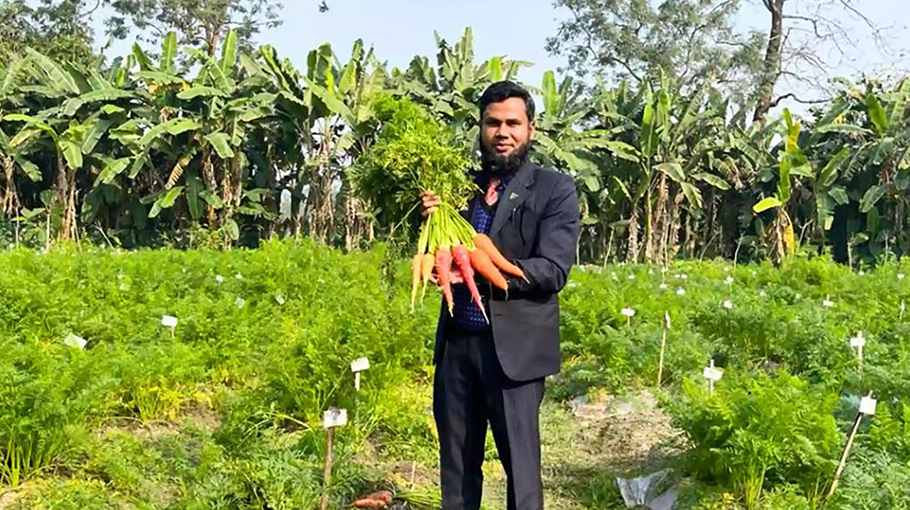BAU develops HYV carrots

A team of Bangladesh Agricultural University (BAU), led by Professor Dr. Md. Harun Ar Rashid of the Horticulture Department has developed several high-yielding varieties of carrots. The research, conducted in collaboration with the United States Agency for International Development (USAID), United States Department of Agriculture (USDA/ARS), and Bangladesh Agricultural University Research System, involved the study of 56 varieties of carrot from the United States and 24 varieties from various regions of Bangladesh.
While the average yield of carrot on per hectare of land in the country is around 10 tons using traditional methods, the newly developed high-yielding carrot varieties are expected to yield between 30 to 40 tons per hectare.
Additionally, these carrots are suitable for cultivation in warm and drought-prone areas of the country, according to the research team.
Regarding the cultivation of these high-yielding varieties, Dr. Md. Harun Ar Rashid said these carrots can be harvested within 70 to 80 days, with each carrot weighing 200 to 250 grams.
These new carrot verities have been successfully cultivated in various drought-prone areas of northern Bangladesh, such as Kaunia upazila in Rangpur, Lalmonirhat, and Ishwardi upazila in Pabna, he told
The cultivation of these carrots will help change the fortunes of farmers in areas where potato yields are high.
The professor said although orange colour carrots are available in the country, the cultivation of various other colours of carrots such as red, white, yellow, and violet, which are rich in Vitamin A, anthocyanin, and antioxidants, is possible now.
“The antioxidants present in these carrots help boost the body's immune system, reduce the risk of heart disease, and lower the risk of cancer. The vibrant colors of these carrots also provide natural and safe food colouring options for various food including cakes and ice creams,” he said. As the weather of Bangladesh is not suitable for carrot seed production, approximately 99% of the seeds are imported from abroad at a cost between Tk 30,000 to 40,000 per kilogram, he said.
However, most of the imported seeds are of hybrid varieties, making it impossible to produce seeds from the harvested carrots.
“Efforts are underway to develop seeds from the new high-yielding carrot varieties. It is expected that with successful seed production, farmers will have access to affordable seeds, and the government can also save a huge amount of foreign exchange,” he said.




